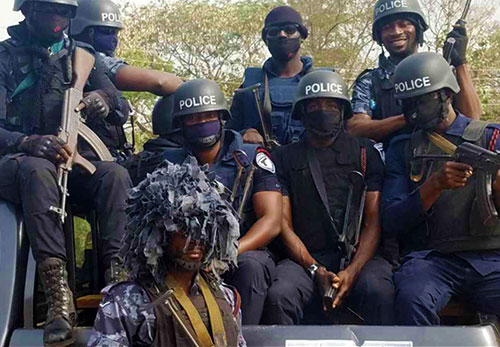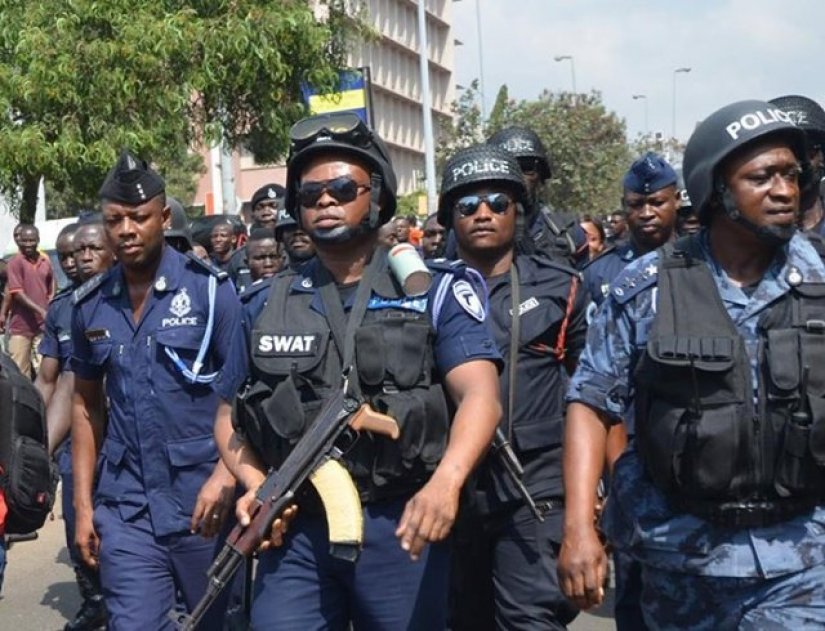
Ratio of police to population worldwide: Are we protecting the people?
THE professional policemen in England, United Kingdom, were named after their founder Robert Peel, the home secretary, under the Metropolitan Police Act of 1829.
They were called ‘’Peeles’’ or ‘’Bobbies’’. ‘’Peeles’’ meant the men of Robert Peel, the home secretary.
Advertisement
"Bobbies’’ is the short form of his name, Robert. Peeles or Bobbies were recruited and trained to enforce public law by maintaining law and order in the London Metropolis.
It has been recorded that the origin of the modern police force is rooted in the history of the American colonies of Britain.
At first, groups of men were recruited in the 1700s in the south of what became the United States of America (USA).
Their duty was to stop slaves from running away from their owners. Later in the 1800s, a formal police force was set up in the north of the country to regulate the movement of migrants from villages and small towns into cities.
Recruiting and training men and women in the art and act of enforcing the law has become a tradition that has been replicated worldwide.
Today, every country has a police service. Their duties include maintaining law and order, preventing and detecting crime and apprehending and prosecuting offenders at the courts.

The duties of the police officers are so important for maintenance of law, order and peace in the communities of the modern nation-state that they have become indispensable.
It has become necessary for a country to ensure that adequate number of officers are available to maintain law and order.
The number of officers to the population of a country varies. The developed countries have more, well-trained and equipped officers than the developing ones.
For example, in Germany, the police had, 315,90 officers in 2018. Germany then had a ratio of 381 officers to 100,000 persons. In 2017, Canada had 67,425 officers, with a ratio of 188 to 100,000 persons.
England and Wales both had 124,784 officers. The ratio was 211 to 100,000 persons.
Australia, in 2017, had 53,857 police force with a ratio of 218 to 100,000 persons; Austria had 27,500 officers in 2012, ratio, 324; and Ireland, in 2012, 13,000 officers, ratio, 365.
The police officer-population ratio depends on the size of a country’s population and the country’s ability to establish and maintain an effective police system.
India is a developing country with a population of 1.3 billion. It had 1,926,000 strong police force in 2018. The ratio was 198 to 100,000 persons.
China is also a developing country with a population of 1.4 billion. It had two million officers in 2018 with ratio of 143 to 100,000 persons.
For Ghana, in 2012, the country had 23,000 police officers, with a ratio of one officer to 848 persons. The number rose to 30,635 officers in 2014.
It was reported in 2017 that Ghana was 28,000 officers short of the United Nations’ benchmark of one officer to 500 persons.
The first police service in Ghana was established in 1831; Governor George Maclean recruited 129 men into what was then known as Gold Coast Corps, that later it changed to Royal Corps.
Their duty was to patrol the trade routes between Ashanti and the coast and to protect colonial merchants and officials around the Cape Coast Castle.
In 1860, ‘more efficient’ men of the West Indian Regiment joined the Royal Corps and in 1871, the colonial government established the Gold Coast Police Force that included 400 men brought in from northern Nigeria. Later, Gold Coast civilians were recruited into the police force.
Today, the number of officers has increased. All of them are Ghanaians. However, Ghana is yet to make up for the shortfall of 28,000 officers. 
That problem has been compounded by the need to protect public servants who are exposed to various levels of risks related to their duties. High on the list are key office holders in the executive, legislative and judicial arms of government.
The head of the executive arm, the President, his vice, ministers and deputy ministers are exposed to risks and must be protected by police officers.
Senior members of the judicial arm are highly exposed persons – because of the nature of their work, which can easily create enemies for them.
They sit over cases and deliver judgements that often land persons in prisons or condemned cells for murder.
There is another category of public servants not yet listed into the category of public officers that must be given police protection – the parliamentarians.
The Speaker of Parliament, his deputies and leadership of the House of Representatives do have police protection, but the rest, about 200 out of the 275 MPs, do not.
Last week, the Minister of The Interior, Ambrose Dery, announced that the 200 would be assigned one officer each on daily basis.
That number might be increased to 800 in future, which translates into two officers to one MP.
When 200 officers are, presently, assigned to one MP – out of the 30,635, will the remaining officers be adequate to keep every Ghanaian safe in the streets, at home and elsewhere?
Compared with judges, MPs are not at the same level of risk exposure. It is not correct to put MPs and judges at the same risk level.
MPs are politicians who must mix with the people and relate with them. It is necessary for judges to isolate themselves because of their work; judges do not have social life.
In 1982, three judges of the high court were kidnapped from their residences ostensibly in reprisals for their judgements at court.
Close to the 2016 elections, J.B. Danquah, an MP, was killed by armed robbers. Ekow Hayford, MP for the Mfantseman Constituency, was also killed on October 9, 2020 by armed robbers.
It appears that the level of risk that MPs face is not different from that of the ordinary Ghanaian. Solving the armed robbery problem in Ghana, generally, will give MPs good protection.
Email: [email protected]



